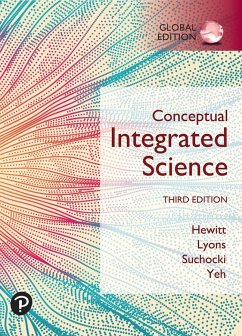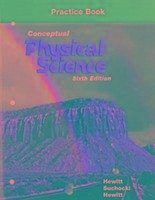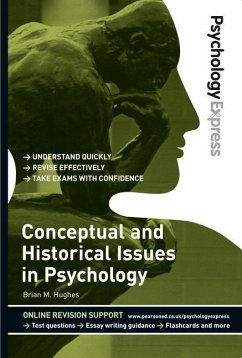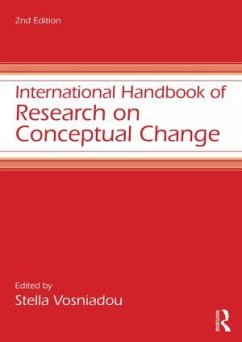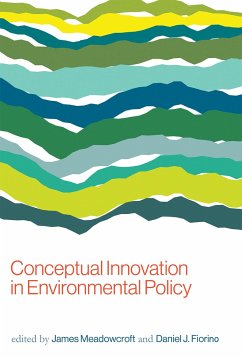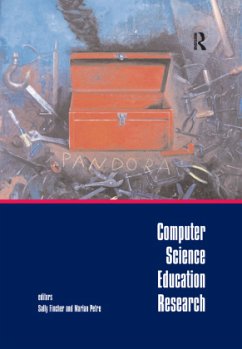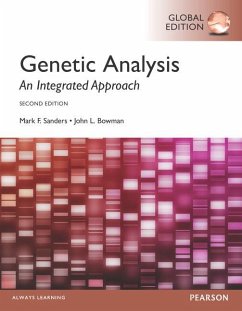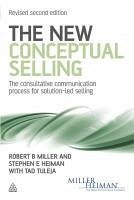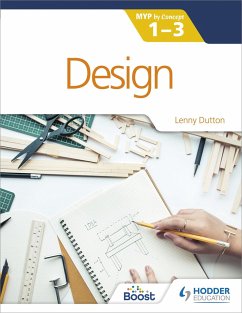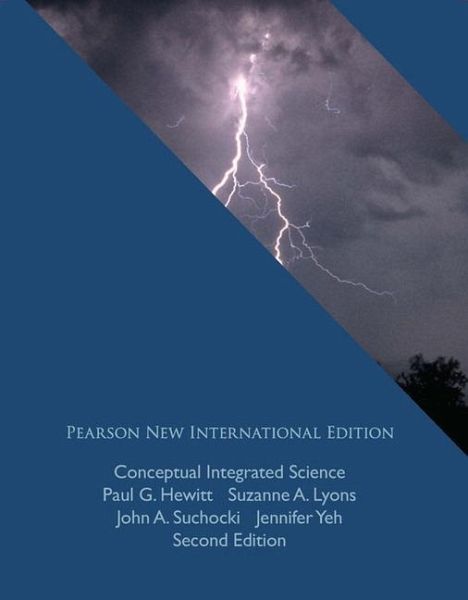
Conceptual Integrated Science
Pearson New International Edition
Versandkostenfrei!
Nicht lieferbar
Were you looking for the book with access to MasteringPhysics? This product is the book alone and does NOT come with access to MasteringPhysics. Buy the book and access card package to save money on this resource.
This best-selling introduction to the physical and life sciences emphasizes concepts over computation and treats equations as a guide to thinking so the reader can connect ideas.
Conceptual Integrated Science covers physics, chemistry, earth science, astronomy, and biology at a level appropriate for non-science students. The conceptual approach relates science to everyday life, is personal and direct, deemphasizes jargon, and emphasizes central ideas. The conceptual ideas serve as the foundation supporting and integrating all the sciences.
Features + Benefits
Integration and Relevance
Integrated Science (IS) sections are found in every chapter. They show how the foundational ideas connect the different sciences. End of chapter questions are associated with most IS sections.
Unifying Concept icons indicate cross references to the same unifying concept in other parts of the book.
Pedagogy:
Insights in the margins of the text provide interesting facts or pedagogical aids.
“Check Yourself” questions and answers throughout the text help students gauge their level of comprehension as they read.
Math Connection boxes allow students to understand scientific concepts in a quantitative manner. This feature is particularly useful for courses that have math requirements.
History of Science boxes provide background information on historical experiments and scientific discoveries related to topics discussed in the chapter.
Technology boxes discuss the scientific principles behind everyday modern technology.
Science and Society boxes feature current-event topics which relate science to everyday life.
Flexibility:
Boxed and Pedagogical Features are all presented in a flexible format that allows professors to pick and choose content to use in their courses.
1. About Science
Part I. Physics
2. Describing Motion
3. Newton’s Laws of Motion
4. Energy and Momentum
5. Gravity
6. Heat
7. Electricity and Magnetism
8. Waves—Sound and Light
Part II. Chemistry
9. The Atom
10. Nuclear Physics
11. Investigating Matter
12. Chemical Bonds and Mixtures
13. Chemical Reactions
14. Organic Chemistry
Part III. Biology
15. The Basic Unit of Life—The Cell
16. Genetics
17. The Evolution of Life
18. Biological Diversity
19. Human Biology I—Control and Development
20. Human Biology II—Care and Maintenance
21. Ecosystems and Environment
Part IV. Earth Science
22. Plate Tectonics
23. Rocks and Minerals
24. Earth’s Surface—Land and Water
25. Surface Processes
26. Weather
27. Environmental Geology
Part V. Astronomy
27. The Solar System
28. The Universe
This best-selling introduction to the physical and life sciences emphasizes concepts over computation and treats equations as a guide to thinking so the reader can connect ideas.
Conceptual Integrated Science covers physics, chemistry, earth science, astronomy, and biology at a level appropriate for non-science students. The conceptual approach relates science to everyday life, is personal and direct, deemphasizes jargon, and emphasizes central ideas. The conceptual ideas serve as the foundation supporting and integrating all the sciences.
Features + Benefits
Integration and Relevance
Integrated Science (IS) sections are found in every chapter. They show how the foundational ideas connect the different sciences. End of chapter questions are associated with most IS sections.
Unifying Concept icons indicate cross references to the same unifying concept in other parts of the book.
Pedagogy:
Insights in the margins of the text provide interesting facts or pedagogical aids.
“Check Yourself” questions and answers throughout the text help students gauge their level of comprehension as they read.
Math Connection boxes allow students to understand scientific concepts in a quantitative manner. This feature is particularly useful for courses that have math requirements.
History of Science boxes provide background information on historical experiments and scientific discoveries related to topics discussed in the chapter.
Technology boxes discuss the scientific principles behind everyday modern technology.
Science and Society boxes feature current-event topics which relate science to everyday life.
Flexibility:
Boxed and Pedagogical Features are all presented in a flexible format that allows professors to pick and choose content to use in their courses.
1. About Science
Part I. Physics
2. Describing Motion
3. Newton’s Laws of Motion
4. Energy and Momentum
5. Gravity
6. Heat
7. Electricity and Magnetism
8. Waves—Sound and Light
Part II. Chemistry
9. The Atom
10. Nuclear Physics
11. Investigating Matter
12. Chemical Bonds and Mixtures
13. Chemical Reactions
14. Organic Chemistry
Part III. Biology
15. The Basic Unit of Life—The Cell
16. Genetics
17. The Evolution of Life
18. Biological Diversity
19. Human Biology I—Control and Development
20. Human Biology II—Care and Maintenance
21. Ecosystems and Environment
Part IV. Earth Science
22. Plate Tectonics
23. Rocks and Minerals
24. Earth’s Surface—Land and Water
25. Surface Processes
26. Weather
27. Environmental Geology
Part V. Astronomy
27. The Solar System
28. The Universe




